Find an Emergency Dentist Near You, Fast.
When you have a cracked tooth, lost filling, swelling that won’t quit, or something else that doesn’t quite feel quite right, you need emergency dental help now. Find an emergency dentist using our search tool below.
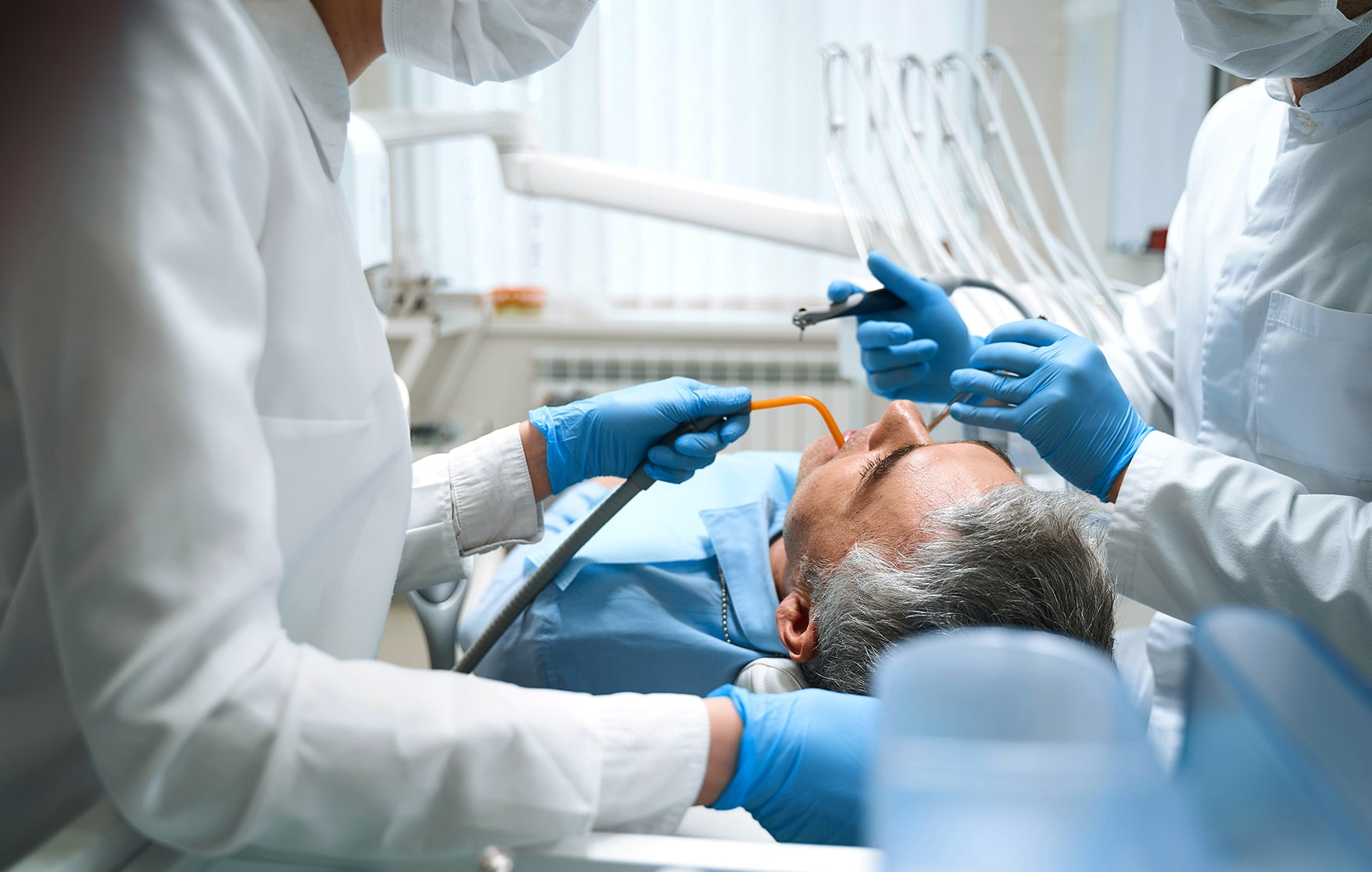
Language
Coverage
Type of Care
Coverage
Language
Type of Care
Loading dental practices...
What Counts as a Dental Emergency?
Severe Toothache
Persistent pain that interferes with daily activities.
Cracked or Broken Tooth
Damage from injury or biting hard objects.
Dental Abscess
Infected tooth requiring immediate treatment.
Facial Swelling
Swelling that may indicate serious infection.
Lost Filling or Crowns
Dental work that has come loose or fallen out.
Dental Trauma
Injuries from accidents or sports.
What to Expect During Your Emergency Visit
Checkup
Dentist assesses your situation, may take X-rays, and determines the problem.

Pain Relief
Quick care to ease pain and help you feel better fast.

Treatment Plan
Simple, well-explained next steps, so you know how to fix the issue.
Don’t Wait Until It’s Too Late
Dental pain doesn’t fix itself. What feels bearable today could be much worse —and more expensive—tomorrow; acting fast matters.
- Stop the pain before it gets worse
- Protect your teeth and your health
- Save money, potentially, by avoiding major procedures down the line
Even if the pain comes and goes, the underlying problem usually remains. Better to know than wonder.

Emergency or Not? Here’s How to Tell
Not every dental issue means drop everything and run. But some do.
Call a dentist now if you have
- Sharp, ongoing pain
- Swelling, especially in your jaw or face
- Bleeding that won’t stop
- A knocked-out tooth… it can be saved!
If you have a fever over 101°F that lasts for more than a day, signs of infection, or trouble breathing, please contact your primary care doctor.
It can probably wait a day, if you have
- A dull ache
- A chipped tooth with no pain
- A lost filling or crown that isn’t hurting
- Mild sensitivity
Still unsure? Better safe than sorry. One quick call will clear it up.
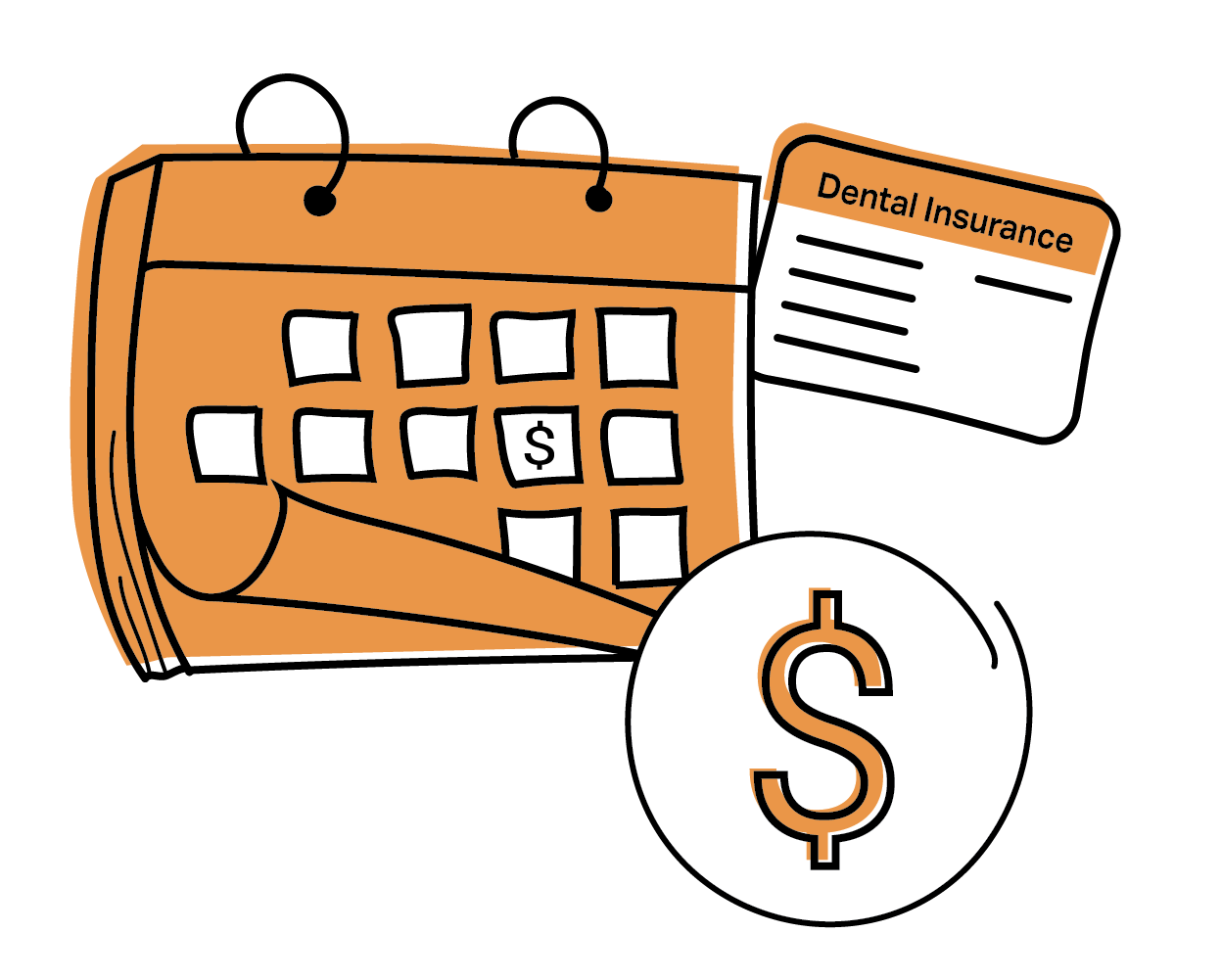
Worried About Cost? Let’s Talk Options.
Dental emergencies aren’t planned, and they’re rarely budgeted for. The good news is that you have choices.
- Dental savings plans: Some offices offer membership plans that cut the cost
- Payment plans: Spread out the cost over time, even if you don’t have insurance
- Insurance help: Staff can help you understand what your plan covers
- Discounts for cash payments: Many offices will work with you if you’re uninsured
Ask about costs and payment options when booking your visit. It helps to know what to expect.
Emergency Dental Care for Kids
Kids get tooth trouble, too… from playground tumbles to mystery pains, and more. Know what to do if your child is hurting.
- Stay calm. Your child will follow your lead.
- Baby teeth and adult teeth are treated differently, so we’ll connect you to the right dentist.
- If a tooth gets knocked out, put it in milk or saliva and bring it with you (don’t try to put a baby tooth back in).
Pediatric emergency dentists are highly skilled at keeping kids calm, explaining what’s happening, and using gentle techniques that make a scary situation a lot easier.

What to Bring and How to Prep
To make your visit go as smoothly as possible, try to bring the following
- A photo ID
- Your insurance card, if you have one
- Any dental devices or pieces of a broken tooth
- A list of any medications you’re taking
- Notes about your dental history, if you know it
What to Bring and How to Prep
And feel free to ask questions! Here are a few good ones to start you off
- What’s causing the pain?
- What are my options?
- How should I care for this after treatment?
Find Emergency Dentist Near You
You don’t have to suffer, guess, or wait. Find an emergency dentist near you now and get the help you need.
Frequently Asked Questions
What qualifies as a dental emergency, compared to a minor problem?
Severe pain, swelling, bleeding, or a knocked-out tooth = emergency. A mild ache or chipped tooth with no pain can usually wait a day or two.
How quickly should I contact a dentist after a tooth is knocked out?
Immediately. Within 30 minutes is best. Keep the tooth moist (milk or saliva) and call a dentist right away to boost chances of saving it.
Can I go to an emergency dentist without insurance?
Yes. Many emergency dentists accept patients without insurance and offer payment plans, cash discounts, or membership savings plans to make care more affordable.
How much does emergency dental care typically cost?
Costs vary by treatment and location. Expect $100–$300 for exams, with additional fees for procedures. Ask about payment flexibility up front, because many offices will work with you.
What steps should I take while waiting to see a dentist?
Rinse gently with salt water, use cold compresses for swelling, and take over-the-counter pain relief. Avoid chewing on the affected side.
When should I visit a hospital emergency room instead of a dentist?
If you have trouble breathing, a high fever, facial swelling, or think your jaw is broken, head to the ER. It may be a medical emergency.
Do emergency dentists offer sedation or special care for anxious patients?
Yes. Many offer sedation options, calming environments, and extra care for kids, anxious adults, or patients with special needs. Just ask us when you call.
Will my dental insurance cover emergency visits and treatments?
Most dental plans cover emergencies, but coverage can vary. Contact your provider or ask the dentist’s office to check what is included and what your out-of-pocket cost will be.
How do I handle a broken crown or lost filling until my appointment?
Keep the area clean and avoid chewing in this area. Over-the-counter dental cement can help cover the spot temporarily. Call us to get seen as soon as possible.
What should I bring to an emergency dental appointment?
Your ID, insurance card (if any), a list of medications, any broken dental pieces, and notes on your symptoms or medical history. Don’t forget to prepare some questions!
Can I schedule a same-day appointment online for urgent dental care?
Our emergency dentists offer booking for same-day or next-day appointments.
How can I prevent dental emergencies in the future?
Brush and floss daily, wear a mouthguard for sports, avoid chewing hard objects, and get regular checkups. Catching small issues early can prevent big problems later.
What’s the best way for me to take care of myself, after emergency dental care?
Follow your dentist’s instructions, take prescribed medications, avoid hard foods, maintain gentle oral hygiene, manage swelling with cold compresses, and keep an eye out for pain or unusual symptoms.
Related Information
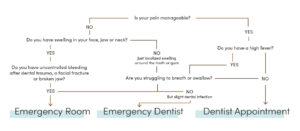
Should You Go to the ER for Tooth Pain? A Quick Guide
Whether you should go to the ER for tooth pain depends on the severity of your pain and what other symptoms you’re experiencing. Read on for help deciding how to find relief.
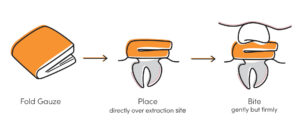
How to Stop Bleeding After Tooth Extraction: Easy Tips for Immediate Relief
After a tooth extraction, some bleeding at the site is normal and will usually slow down within 2-3 hours. Gentle oozing (think pink saliva) will often continue for the first 24 hours. Below you’ll find tips for helping to stop the bleeding, and how to tell the difference between normal recovery and signs that you should call your dentist.
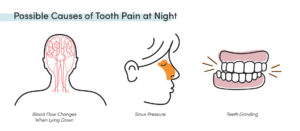
Why Does My Tooth Hurt at Night? 5 Possible Reasons and What You Can Do Right Now
Dental problems often feel more painful at night because lying down increases blood flow to the head, which heightens pressure and sensitivity. Other common causes include increased sinus pressure and unconscious jaw clenching and teeth grinding. While the long-term solution may require a visit to the dentist, there are measures you can take immediately to get some relief.
